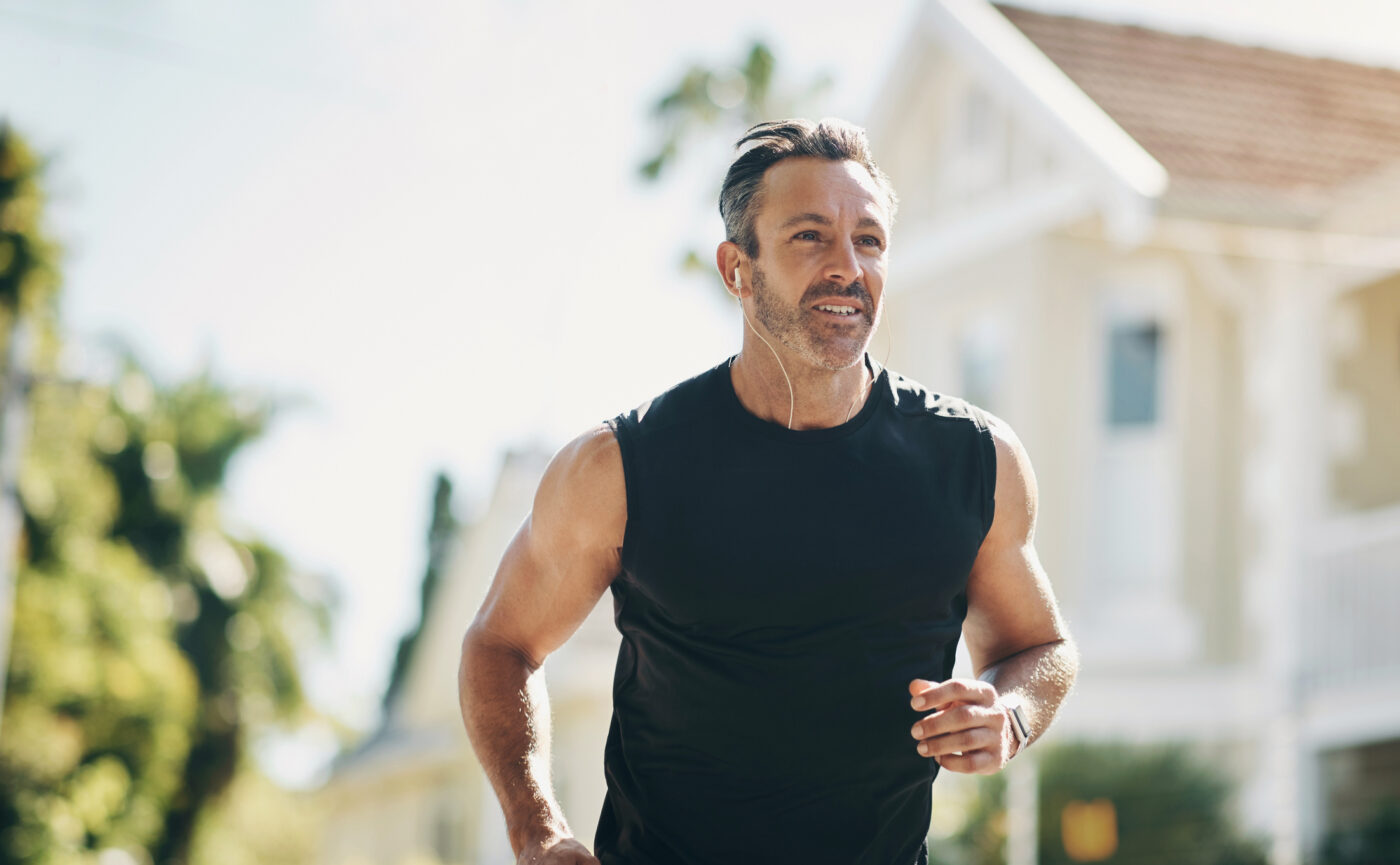My first hint that something was wrong was the growing puddle of oil on my garage floor. I’d just been gifted a 40-year-old boat motor. It would start, but it was going to take a lot more work than I had planned before I could use it on a lake. I had to call in some help, and we began to look at all the reasons why an older motor would be running so roughly. In this case, the motor had several things wrong with it, so we got to work. Once we’d adjusted the throttle and replaced both the spark plugs and leg oil, it began to run noticeably better.
What I experienced with that boat motor can be a lot like the way any man goes through life. There might be obvious clues pointing to things we need to work on. At other times, we might need help from someone to figure out what’s wrong. Knowing the different parts of your life that might need attention is a good place to start. Here are 8 ways you need to take care of yourself.
Physically
While your physical health includes how much you can bench press and how fast you can run a mile, it also includes how you eat and sleep. You usually know quickly when something doesn’t feel quite right and you need to take care of yourself. We also know we can turn to physical trainers, physiotherapists, dieticians, doctors, and other experts to help make a plan for improved physical health. Are healthy eating, regular activity, and exercise a part of your routine?
Emotionally
For a lot of men, emotional health may be the most challenging area to deal with because we’ve been taught this isn’t something to worry about. This is why so many men fight the urge to cry in public. You can tell something is wrong with your emotional well-being when you’re having trouble processing a difficult experience, or when we overreact to something our kids have done. In these cases we can turn to our spouses, trusted friends, or an expert like a counselor or therapist who can help us process our feelings. Do you feel like you process your emotions, or do you try to keep them hidden away?
Occupationally
Some people find great satisfaction in their work. Others find satisfaction in difficult work by knowing it provides for their families. Some aren’t so lucky. Signs that things aren’t good in this area might include a struggle to maintain a proper work/life balance or an ongoing dread of going into work. You might even struggle to keep a job or find one in the first place. While some might find it easiest to seek out a different career, when that’s not an option, you can find greater health in this area by setting clearer boundaries between work and your home life or by finding a hobby you find fulfilling. How do you feel about your work and career?
Socially
An old story tells us that “it is not good for the man to be alone.” Certainly this speaks of the gift of a partner to share love and life with, but it also references our need for human community—our need for friends. We are made to be social creatures, so an element of social wellness is found in the quality of friendships we cultivate. Do we have friends we can celebrate and mourn with? Do we look out for the needs of others?
Financially
Financial wellness is about more than just having a full bank account. Ebenezer Scrooge was the wealthiest man in town but was also one of the loneliest because money was the most important thing in his life. Our financial health looks at our relationship with money and it’s an important way to take care of yourself. Are we responsible with our money? Do we save up for the things we want or have our choices left us overwhelmed by debt? To be healthy in this area means paying our bills on time, learning to budget, and learning to save money. If you list the most important things in your life, where does money fit in comparison to other important things like your family, friendships, and faith?
Intellectually
Children have an innate curiosity, a desire to understand how things work. This is why they find it easier to acquire new skills than it is for most adults. Kids ask their parents endless questions because they want to know the answers, and we really should be more like them. Someone who is intellectually healthy explores strange concepts, acquires new skills, and seeks out novel experiences. When’s the last time you learned something new?
Environmentally
On one hand, environmental wellness means respecting the world around us. It means getting outside and taking in some fresh air. For some men this takes place hiking, fishing, camping, or generally being outdoors. For others it’s just a question of getting outside for a walk a couple of times a week. To take care of yourself in this area also means looking at the spaces in which we live and we work. Are they clean and in good repair? Do they help us to be healthier in every area of our lives, or are they sources of temptation to do something we probably should not do?
Spiritually
Throughout history, cultures around the world have wrestled with the questions Who am I? Why am I here? Spiritual wellness is found in the answer to those questions. We get well spiritually by getting to know the one who created us. The one that made us knows us better than we know ourselves and is best able to help us find purpose and meaning in our lives. For me, the starting point for spiritual wellness is found in prayer, reading scripture, and participating in a church community. When’s the last time you stopped to pray?
Sound off: How can you take care of yourself better today than you did yesterday?











Huddle up with your kids and ask, “What is something you can do to take care of yourself?”